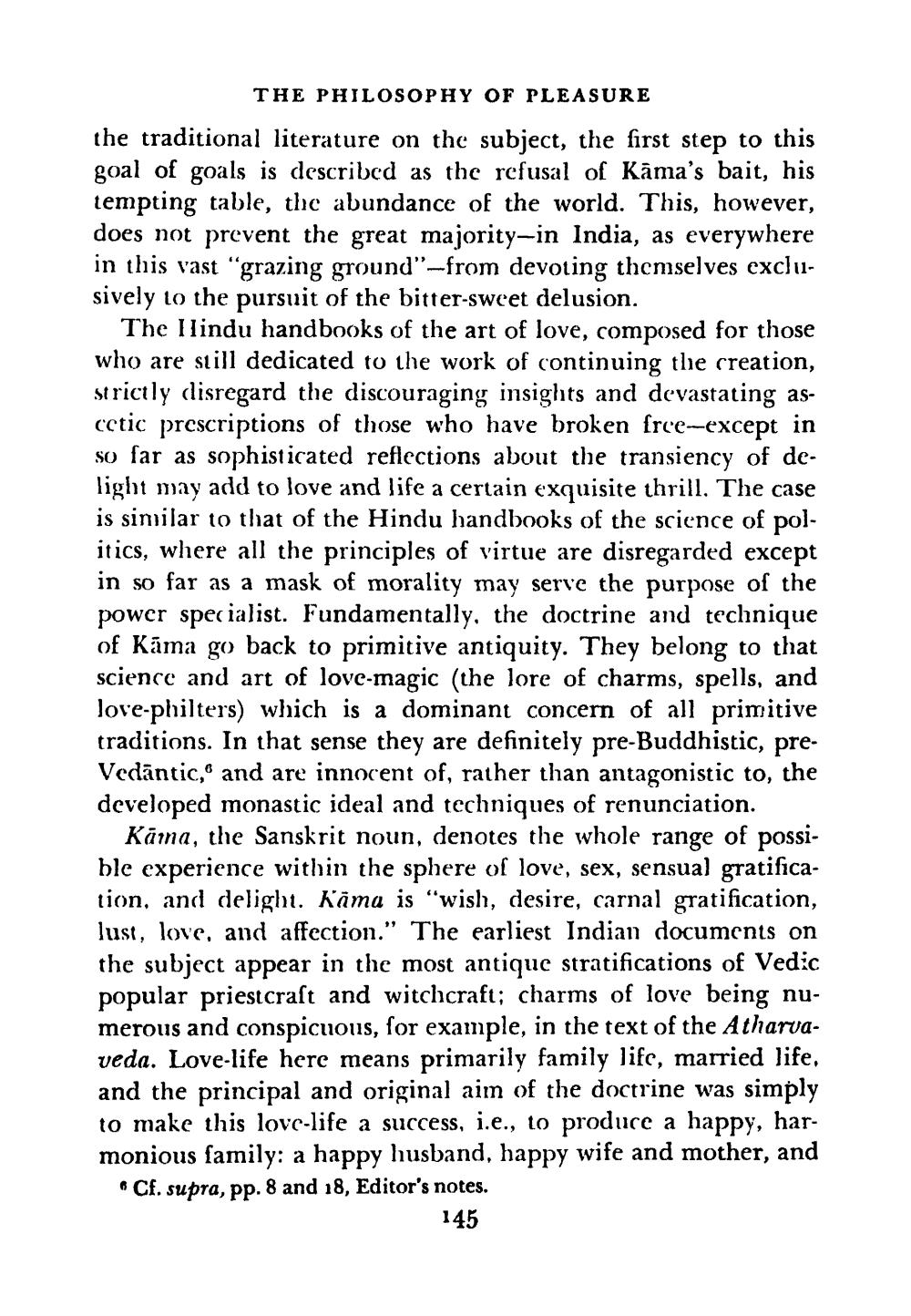________________
THE PHILOSOPHY OF PLEASURE
the traditional literature on the subject, the first step to this goal of goals is described as the refusal of Kāma's bait, his tempting table, the abundance of the world. This, however, does not prevent the great majority-in India, as everywhere in this vast "grazing ground"-from devoting themselves exclusively to the pursuit of the bitter-sweet delusion.
The Ilindu handbooks of the art of love, composed for those who are still dedicated to the work of continuing the creation, strictly disregard the discouraging insights and devastating ascctic prescriptions of those who have broken frce-except in so far as sophisticated reflections about the transiency of delight may add to love and life a certain exquisite thrill. The case is similar to that of the Hindu handbooks of the science of politics, where all the principles of virtue are disregarded except in so far as a mask of morality may serve the purpose of the power specialist. Fundamentally, the doctrine and technique of Kāma go back to primitive antiquity. They belong to that science and art of love-magic (the lore of charms, spells, and love-philters) which is a dominant concern of all primitive traditions. In that sense they are definitely pre-Buddhistic, preVedāntic, and are innocent of, rather than antagonistic to, the developed monastic ideal and techniques of renunciation.
Kāma, the Sanskrit noun, denotes the whole range of possible experience within the sphere of love, sex, sensual gratification, and delight. kama is "wish, desire, carnal gratification, lust, love, and affection." The earliest Indian documents on the subject appear in the most antique stratifications of Vedic popular priestcrast and witchcraft; charms of love being numerous and conspicuous, for example, in the text of the Atharvaveda. Love-life here means primarily family life, married life. and the principal and original aim of the doctrine was simply to make this love-life a success, i.e., to produce a happy, harmonious family: a happy husband, happy wife and mother, and • Cf. supra, pp. 8 and 18, Editor's notes.
145




